From the shadow of Lagos’ bustling Murtala Muhammed Airport to the cockpit of Africa’s high-stakes private aviation market, Chukwuerika Achum, the founder of Falcon Aero and its flagship brand, Vivajets, has built a pan-African charter operation in just over two years. But his path was anything but conventional. Denied his childhood dream of becoming a pilot by prohibitive training costs, Achum instead entered the sector as a flight dispatcher, parlaying early technical roles into commercial leadership positions that exposed him to the luxury jet market. In his conversation with Omolabake Fasogbon, he speaks about how he moved from managing executive travel for oil majors to securing one of Nigeria’s rare indigenous aircraft financing deals and how his ascent has been fueled not by deep pockets, but by what he calls his reputation bank, which is his years of delivering on promises and earning trust in an unforgiving business. Excerpts:
You’ve built a successful career path in Aviation. Can you tell us what defines your entrepreneurial inclination?
Entrepreneurship for me is fundamentally about responsibility. Yes, there’s a glamorous side when success arrives, but that’s not what drives me. The real inspiration is knowing that people’s livelihoods, including my team and their families, depend on how well we succeed. That awareness pushes you to deliver every day. I’ve always had a natural pull toward startups and new ventures. Looking back through my career, I’ve been at the helm of fresh initiatives more often than not.
Does that mean you’ve always had a dream to build an airline as a child?
Not really, I had always wanted to be a pilot someday, but unfortunately, my family could not afford up to $100,000 needed to train as a pilot from scratch to a commercial pilot’s license. However, I’ve always loved to pursue a career in the aviation industry, so I chose a different entry point as a flight dispatcher, after I went to a flight dispatch training school. This offered me advanced knowledge, including ground skills as a pilot.
So, what stirred your interest in the aviation discipline?
As a child, we lived around Mafoluku, Lagos, which is close to MMA airport, the same as my elementary school within the Ajao Estate environs, and under the take-off path of Lagos Airport. Every day, aircraft thundered overhead, and I couldn’t help but look up and this naturally sparked my interest. Besides, we had easy access to the airport to witness some of their operations. Today, the rest like they say is history. For many aviators, the path is inherited, either a parent bringing in family members or an association influencing a person’s entrance into the space. In my case, I was the first in my family to show any interest in the field.
Tell us how you went from a flight dispatcher to controlling a pan- African charter airline?
Laughs… Well, I’m not there yet. After working as a flight dispatcher in Lagos, I was fortunate to be engaged as a ground instructor by the International Aviation College, set up by Kwara Governor in Ilorin. From there, I was sent for training at Flight Safety International, Paris, which further broadened my horizon. I later joined the ground instruction cadre, affording me the opportunity to train pilots in disciplines like metrology, navigation, and so forth. My career took shape after I joined Toucan Aviation in Lagos, introducing me to the commercial aspect of the industry. Toucan had a private jet contract with the now Total Energies. Working here introduced me to high-level customer engagement in aviation, where I managed executive travel for major corporations. Note that as I move through jobs over time, I was also acquiring formal knowledge in relevant disciplines, which my on-the-job experience made me relate to and cope successfully. The turning point for me was when I joined Jet Support Services as Chief Technical Officer, eventually becoming Chief Operating Officer, growing the company into one of Nigeria’s largest business jet operators. I worked under a fantastic boss who gave me room to bring my ideas to life. After leaving in late 2022, I was ready to build something new, which was Falcon Aero, which birthed Vivajets.
Setting up a business is not child’s play. How did you navigate this stage?
In aviation, trust is the real currency. You can have all the financial capital in the world, but if your trust capital is low, you won’t go far. Over the years, I had built what I call a ‘reputation bank’ , which is a history of delivering on promises and protecting clients’ interests. That’s something you can only deposit into with time, not cash. Our very first project as Falcon Aero was managing an aircraft for Chief Michael Ade-Ojo of Elizade Group, which we still manage to date. This was a multi-million-dollar asset; there were far bigger companies that could have done that, but he trusted us. That trust gave us validation in the industry. We didn’t start with heavy equity investment; what we had was technical know-how, energy, and credibility, which automatically fast-tracked building Vivajets, one of the operating brands of Falcon Aero.
Can you take us through the trajectory of Vivajets that has now become a household name in a little over two years?
We started by leasing. As with underdogs generally, it was not easy getting that visibility in a saturated space. Certainly, we knocked on a lot of doors, and not every door opened. For every ’yes’, we probably heard ten ‘no’s.” Every ‘yes’ we get is a win for us, and a milestone too. In a niche market where we operate, excellence gets noticed, but one still has to be visible. As we rose through the ladder, we were able to secure our Air Operating Certificate (AOC) from the Nigerian Civil Aviation Authority (NCAA) which grants us access to over 34 African countries. In May this year, we acquired our first aircraft- Challenger 604 , financed by Premium Trust Bank, to be on board, possibly by September. To us, it is a landmark deal because Nigerian banks rarely finance private jet operations as they understand scheduled airlines better. Ours was one of the first indigenous aircraft financing deals of its kind. Although we hold a commercial license, we are strictly for charter operations. We intend to consolidate our position in the charter space before considering scheduled services. Thankfully, we now have high-profile clients like Africa’s richest man, Aliko Dangote and even the presidency of Gabon, amongst others, whose aircraft we manage, in addition to the charter business.
In those years of humble beginnings and then, progression of Vivajets, what roles did your family play?
I have two wonderful boys, and my wife has been incredibly understanding about the demands of building a company. Time is the biggest sacrifice she makes. I spend most of the month in Lagos, while my family is based in the Middle East, where my wife works. I try to spend at least one week a month there, but the fast pace of this industry often changes plans. Sometimes, I fly there for just two days before heading back. You have always stressed excellence and customer satisfaction as your mantra. Can you talk about the personal values that guide your business decisions?
People are our greatest asset. I hold a pilot’s license, but I don’t fly our aircraft. We hire skilled pilots for that, my role is to ensure they have safe, well-maintained planes to operate. Above all, I believe in trust. I would take a less-skilled team that trusts each other over a highly skilled team with low trust any day. High-trust environments like the Navy SEALS achieve more because members can rely on one another completely. I also try to put myself in other people’s shoes. Sometimes, a team member’s actions have a backstory one needs to understand before reacting. That doesn’t mean tolerating dishonesty, but it does mean leading with empathy.
You’ve always taken on leadership roles, even as an employee, and now that you sit at the helm. Can you tell us what your experiences are as a leader and what lessons learnt?
The way we manage and lead has to evolve. The old methods of leadership, where bosses were seen as distant, powerful figures, are no longer effective. We were raised to respect authority without question, but this new generation of employees values a different kind of relationship. They’re inspired by leaders who are approachable and engaging, not just by titles or seniority.
We can’t expect them to have the same mindset we had. They’re not as deferential, and they expect a healthier work-life balance. We must change our mindset and approach to get the best out of them. This means creating a positive environment where they can thrive.
One of the biggest challenges is recruitment and retention. It’s harder than ever to find skilled people, and when you do, it’s crucial to keep them, especially in a small organisation. Employee turnover is very costly because it leads to a loss of institutional memory and damages customer relationships. Customers want to deal with familiar faces, so continuity is key to our credibility.
I’ve had to learn this through experience. For me, this has meant adjusting my behaviour. For instance, I’ve learned that it’s not effective to send work requests late at night just because I have a sudden idea. It’s better to write it down and send it in the morning to respect my employees’ time. The world has changed, and to succeed, leaders must adapt to these new realities.
Do you have any mentors or books that guide you through leadership or life generally?
I’ve been privileged to work under exceptional leaders who shaped my philosophy. Mentors like Mrs. Kofo Agoro, CEO of Jet Support Services; Captain Kenneth Hawkins, who was Rector, International Aviation College and Mr. Achuzie Ezenagu of Toucan Aviation, amongst others, and they have had a lasting impact on me. On books, I’ve been led by quite a number of them including ‘The Idiot’ written by Fyodor Dostoyevsky which was recommended by a late friend. The book’s theme of personal transformation resonates with me, and it’s reflected in our organization’s focus on continuous improvement. Further motivated by ’The Idiot’, we’ve been able to set up a transformation department to drive innovation and growth. For me, transformation is about staying ahead and adapting to change. It’s essential to continually question and improve processes, and I’m always looking for better ways to do things.
So, you grew up in Nigeria and studied abroad. How have these two worlds influenced your worldview?
They say travel is the greatest teacher. When you look at a passport full of stamps, you see a person who has been exposed to different cultures. This exposure teaches tolerance, experiencing how things are done in different parts of the world gives me the patience and understanding to respond thoughtfully in various situations. It shaped my perspective without erasing my roots. There are values that are intrinsic to who we are as Nigerians, including respect for elders which will never change for me. But living and learning across cultures has deepened my tolerance, and I think that’s the key takeaway from my experiences.
Can you share some of your highest and toughest moments in business?
The high point was signing our first management contract. We were being trusted with an aircraft when we were still “nobodies” officially. Our low moment turns out to be our answered prayers which is having to respond to customers’ last minutes request. We barely have that time to sit and rest, but that’s fine because as we are in the business of selling back time. For example, we don’t know what our aircraft will be doing in the next minute. But we are obsessed with delivering exceptional service, which we consistently go above and beyond to meet and exceed our customers’ expectations.
In all of these, how do you get to unwind during your little free time?
To be honest with you, time is a major luxury. These days, leisure is more about quick escapes, notwithstanding, my weekends are more relaxed, even though I may also work from my home office in casual clothes. At times, I play golf, catch up with lifelong friends, or simply rest. Again, I enjoy travelling to Abeokuta to eat Amala and Ewedu in a local joint. Abeokuta Amala is quite amazing and you know, the city also has a nice golf course. But in this business, the phone can ring anytime with a client request.
So, if you had more time, what would you have done for yourself?
If I had more free time, I’d travel more for leisure, play more golf, and spend more time with my family.
As one who has travelled widely, which African city feels like a second home?
That is Kigali in Rwanda. It’s so clean, accommodating, efficient, and business-friendly. I mean you can register a company and open a bank account in 24 hours, often without even being physically present. Again, it’s visa on arrival and free for Africans, which is rare. Kigali is a true demonstration of African hospitality. I wish more African nations would follow its model.
As a major player in African charter market, what opportunities do you see in this niche space and how do you intend to maximise them?
Africa is challenged by infrastructure, part of which is air connectivity. For instance, a client in Banjul needing to meet the president in Kinshasa might spend a whole day connecting through Addis Ababa. With a business jet however, we can get them there in five hours, hold for their two-hour meeting, and return them the same day. Around 90% of our flights are essential business travel. We also serve the entertainment industry, artists like Burna Boy, Davido, and Wizkid need service like ours because their schedules don’t work with commercial airlines. We see opportunities in this gap, which we are out to bridge with our business jets.
So far, we’ve established a robust infrastructure capable of supporting 10 aircrafts, which has enabled us to demonstrate strong cash flows. This financial stability allows us to pursue debt financing options rather than seeking equity investments. Currently, we’re targeting $25 million in funding, having already secured $4 million with an additional $6 million in commitments. We’re confident that we’ll raise the remaining $15 million by year-end, which will help us achieve our goal of operating eight aircraft by the end of this year or early next year.
How would you assess Nigeria’s aviation industry generally?
The Africa’s aviation GDP contribution is around $75 billion. Compare that to $1.4 trillion in the United States which is geographically one-third the size of Africa or $230 billion in the Middle East, which is one-tenth Africa’s size. The gap is enormous.
We should be aiming for 30% annual growth to catch up, but that requires policy changes. The current Minister of Aviation has improved the business environment, especially by ratifying the Cape Town Convention into Nigerian law. This gives aircraft lessors confidence they can repossess assets if needed, which in turn makes them more willing to lease to Nigerian operators. We benefited directly from this when leasing our first Challenger 604. Besides, the regulatory getting environment is getting more flexible that will can now easily put a call or email the regulator, eliminating the physical bureaucratic process. All of these, including forex stability have ripple effects and ultimately, enabling business in the sector. At the same, there are room for improvements and opportunities for business in the sector.
One is maintenance. In the past, we had to fly aircraft to South Africa or Europe for major checks. Now, several capable Nigerian maintenance organizations have emerged. We recently completed a 7,800-landing inspection – biggest check on a Challenger 604- entirely in Nigeria. Ninety percent of the workforce was Nigerian, which keeps money and expertise in the local economy. So, there are a lot of opportunities in this area and I’m glad Nigerian companies are already exploring this area.
So, what do you want Mr. Achum to be remembered for?
I want to be remembered as someone who created meaningful opportunities for others. While I’m proud of our growing fleet and the fact that we’re acquiring more aircraft, what truly excites me is walking in to the office and seeing so many young people actively engaged, building their careers, and giving purpose to their lives.
You were recently spotted at the NOG Energy Week. Are you eying an opportunity in Oil & Gas?
Yes, I was at the Energy, Oil and Gas Week, and I’m also a partner for the upcoming Africa Energy Week in Cape Town. The oil and gas sector remains the lifeblood of Nigeria’s economy. While diversification is important, it’s impossible to talk about Nigeria without acknowledging the role of oil and gas. For us, participating in these events is a strategic move to see how we can better support the sector from a logistics perspective. The industry requires efficient mobility, and we have the aircraft to meet that need. Conferences like these provide a unique opportunity to engage directly with a wide range of clients in one location.
How are you leveraging technology for your operations?
From day one, we knew we couldn’t scale without technology. We have a dedicated product and innovation team managing everything from aircraft maintenance planning to integrated operational dashboards. These systems give us real-time visibility into flight operations, maintenance status, and financials.
On the customer-facing side, we developed two key products: CharterXE and FlyPJX. CharterXE is a digital platform for booking jets directly from the phone. Our aim is to eventually eliminate paper entirely from our offices, moving to a fully digital workflow by next year.
What are your visions for the company in coming years?
To grow our charter fleet, deepen our Pan-African reach, and keep pushing operational excellence. We don’t just want to be a Nigerian success story; we want to set a benchmark for African aviation.






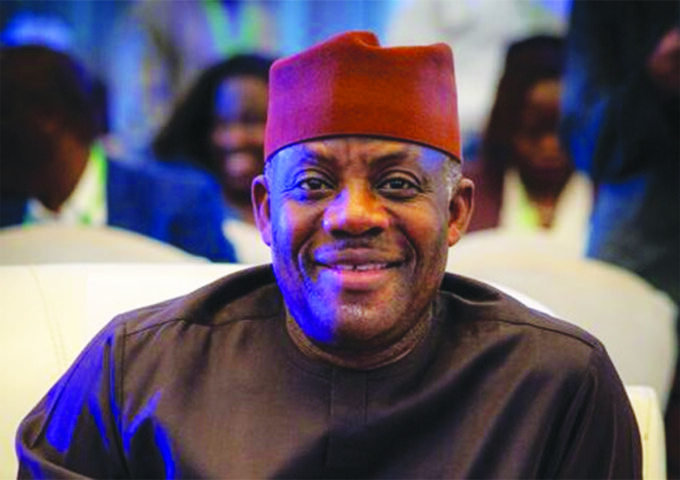

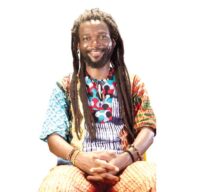
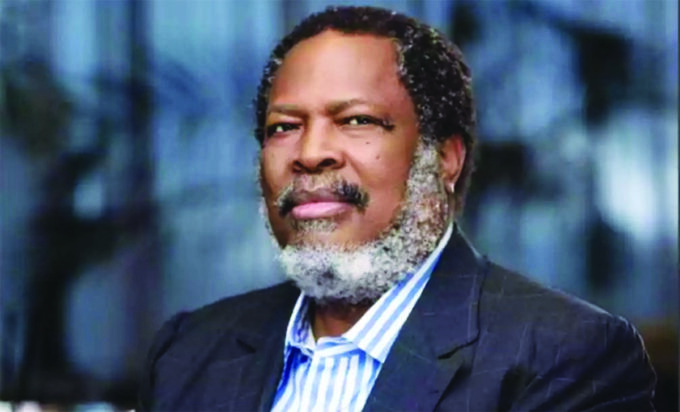
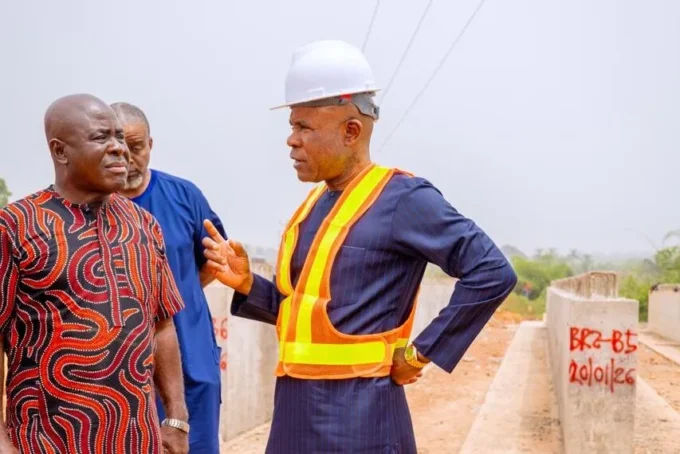
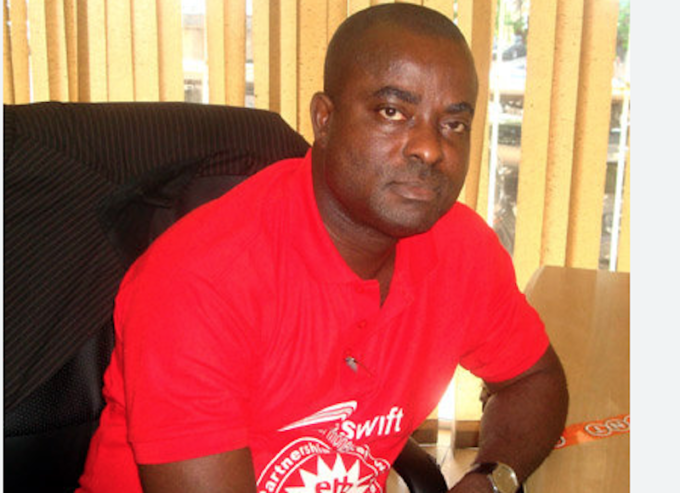



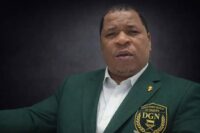
Leave a comment